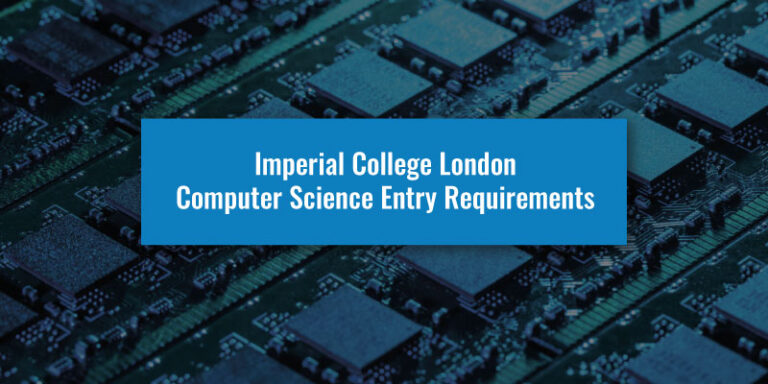If you’re applying to study at a university in London, there’s a good chance you will have considered Imperial College London. As one of the UK’s top universities, places at Imperial are in high demand for applicants.
However, getting into Imperial is far tougher than most other universities in the UK, so how will you be able to get your offer? In this guide, we’ll explore how competitive Imperial College London is, what the application process looks like and how you can prepare yourself for success.
How Hard Is It To Get Into Imperial College London?
This is one of the most common questions for applicants when applying for Imperial. While different courses will have different difficulties based on the number of applicants and available places, we can see the success rates for Imperial applicants as a whole to get a general idea of how difficult it is to get in.
Imperial College London Acceptance Rates (2019 - 2023)
2023
Applicants: 30,739
Offers: 7,948
Acceptances: 3,137
Offer Rate: 25.9%
Acceptance Rate: 10.2%
2022
Applicants: 28,877
Offers: 7,616
Acceptances: 3,092
Offer Rate: 26.4%
Acceptance Rate: 10.7%
2021
Applicants: 28,905
Offers: 7,821
Acceptances: 3,308
Offer Rate: 27.1%
Acceptance Rate: 11.4%
2020
Applicants: 25,780
Offers: 8,758
Acceptances: 3,454
Offer Rate: 34.0%
Acceptance Rate: 13.4%
2019
Applicants: 23,532
Offers: 8,271
Success Rate: 2,857
Offer Rate: 35.1%
Acceptance Rate: 12.1%
From this, we can see that success rates have gradually been going down over the last few years. While the number of places. available has been reducing, more and more applicants are applying each year, with 2023 being the peak of applicants for the last five years.
It’s important to note the large difference between offer rates and acceptance rates each year. This is somewhat unusual for a university as revered as Imperial, as it is likely many offer holders will select it as their top choice. However, it’s important to consider that, even after receiving your offer, you still need to meet your grade requirements, which can sometimes be extremely high for applicants.
Couple that with the fact that many Imperial applicants will also apply to study at Oxbridge. Those who are able to get an offer at Imperial will likely also be skilled enough to get their Oxbridge offer, so some applicants may keep Imperial as an insurance choice instead. Either way, getting an offer still isn’t easy despite the higher success rate.
All of this indicates that getting into Imperial College London is tough. In fact, Imperial has lower acceptance rates than the University of Oxford and the University of Cambridge, which admitted 13.9% and 16.6% of applicants in 2023.
However, despite all this, applying to Imperial may be worth it for you. Although it’s challenging, it’s possible to be among those 10% of applicants who earn their places as long as you’re willing to put in the work.

The Most Popular Imperial Subjects
Some subjects are more popular than others at Imperial, which means there’s more competition for places. However, are the most popular degrees the most competitive? Let’s review the top five Imperial courses based on the number of applications for 2023.
Imperial Medicine Applications
Applicants: 3,459
Offers: 648
Acceptances: 344
Offer Rate: 18.7%
Acceptance Rate: 9.9%
Imperial Economics, Finance and Data Science Applications
Applicants: 2,882
Offers: 188
Acceptances: 78
Offer Rate: 6.5%
Acceptance Rate: 2.7%
Imperial Mechanical Engineering Applications
Applicants: 2,004
Offers: 429
Acceptances: 184
Offer Rate: 21.4%
Acceptance Rate: 9.2%
Imperial Computing Applications
Applicants: 1,443
Offers: 230
Acceptances: 74
Offer Rate: 15.9%
Acceptance Rate: 5.1%
Imperial Biochemistry Applications
Applicants: 1,327
Offers: 315
Acceptances: 132
Offer Rate: 23.7%
Acceptance Rate: 9.9%
While the offer rates vary, all of the final acceptance rates for these degrees are very low, falling below 10%. This means that, while some of these courses may be less challenging to get an offer for, actually getting your place may be much harder depending on your required grades.
Either way, getting into any of these courses is going to be tough, so it’s important that you put the work in during the application process to ensure you’re within the top 10% of applicants. But what are you going to have to do to get to that level? Let’s review the application process next.
Boost your chances of getting into Imperial with expert support from UniAdmissions
When you enrol on the UniAdmissions Imperial Full-Blue Programme, you will have access to everything you need to effectively prepare for each stage of the admissions process. This includes one-to-one tuition, hundreds of preparation materials, live courses, unlimited Personal Statement redrafting and much more.
Discover our Imperial Full-Blue Programme by clicking the button below to learn how you can enrol and boost your chances of success.
The Imperial Application Process
You should hopefully be aware of the UK university application process by now, but applying to Imperial usually requires additional steps beyond this. Let’s review each of these steps and see how you can excel in them:
The UCAS Application
Academic References For Imperial
As part of your UCAS application, you will need to provide an academic reference from a teacher, mentor or counsellor. This process doesn’t change at all for Imperial applicants, though you might want to seek a reference from someone with experience helping Imperial or Oxbridge applicants.
Does Imperial Consider UCAS Points?
UCAS Tariff points are a system used by some universities to judge applicant performance in their qualifications. Applicants earn a certain amount of points based on their performance in exams and coursework across various qualifications. However, Imperial College London doesn’t consider these points when admitting students, only their grades in specific qualifications (e.g. A-Levels).
Imperial UCAS Application Tips
1.
Start Early
2.
Remember The Deadline
Although Imperial applicants don’t usually have to submit their applications early, those applying for Medicine or those who are also applying to Oxbridge will need to ensure their application is ready to submit before October 15th.
3.
Keep Track Of Your Details
When completing your UCAS application form, be sure to keep a record of the details you provide. You’ll need to reference some of this information later in the application process and it’s important that everything is consistent across all sections.
Grade Requirements
As with any university application, meeting specific grade requirements is essential to securing an offer. Since Imperial doesn’t consider UCAS Tariff points, achieving these grades becomes even more crucial to both getting your offer and actually being admitted. Russell Group universities are known for having higher entry requirements, and Imperial is generally one of the toughest out of the whole group.
Starting with GCSEs, Imperial doesn’t place too much importance on these but does state that you are expected to have “mostly 7 – 9 grades” and a minimum of 7 in Mathematics. Certain subjects may also have specific requirements, but this is very uncommon.
More important than your GCSEs are your A-Levels/equivalents, so let’s look at the requirements for that:
What Grades Do I Need For Imperial?
Grade requirements for Imperial courses vary, but you can expect the majority of them to have a grade requirement falling within the following ranges:
- A-Level Grade Requirements: AAA - A*A*A*A*
- Advanced Higher Grade Requirements: AAA
- International Baccalaureate Grade Requirements: 39 (w/ 766) - 43 (w/ 776)
Each course doesn’t have a set requirement for grades, as Imperial regularly advertises both a minimum offer requirement and a typical offer requirement, which is what most offer holders will receive. These can be as high as A*A*A*A* for some subjects, so be prepared to get top grades in your exams.
If you’re looking for proven methods to do this, check out our 3 Approaches To Getting A*s In Your A-Levels.
What A-Levels Should I Take For Imperial?
Imperial almost exclusively teaches STEM subjects, so anyone applying to Imperial will need to take certain subjects depending on the course. Mathematics, Chemistry, Physics and Biology are the most common required subjects at Imperial.
Many degrees will also suggest helpful A-Levels to take, which will be relevant to the subject you’re applying for. Be sure to check the required and recommended A-Levels on the course page for your chosen subject to confirm that your qualifications will be appropriate.
Also, be aware that alternative qualifications will usually be subject to the same subject requirements as A-Levels.
The Personal Statement
Are Personal Statements Important to Imperial?
Imperial College London states that Personal Statements are incredibly important to your UCAS application due to the insight they can provide to admissions tutors. This is certainly true and, for most universities, the Personal Statement is the only measure they have to judge applicants other than academic performance.
However, at Oxford and Cambridge, the Personal Statement has been heavily de-emphasised. This is because Oxford and Cambridge have more effective measures for their applicants, including Admissions Tests and interviews. Imperial College London has also adopted these processes for applicants, so Personal Statements may also be de-emphasised too.
However, your Personal Statement is viewed by all the universities you apply to and, in many cases, is the only aspect of your application they consider beyond your grades. Since no offer is guaranteed, it’s crucial that your Personal Statement is of high enough quality to secure offers from at least one of your choices.
Wider Reading For Imperial
Wider reading is a crucial element of your application as it will help you stand out from the rest of the competition and allow you to effectively demonstrate your interest in the subject, particularly in Questions 1 and 3. Admissions tutors at Imperial are looking for applicants who dedicate time to engage with their subjects, so displaying an interest in exploring your field will show that you have the right attitude to study at Imperial.
Wider reading isn’t restricted to books and can also cover academic papers, research projects, non-fiction films and news articles. Beyond reading, there are also plenty of other super-curricular activities you could do to demonstrate your interest, including relevant clubs, academic competitions and creating your own research project. Anything relevant to your subject will be worth mentioning in your Personal Statement (as long as you have enough space).
Work Experience For Imperial
For university applications, relevant work experience is usually not required but will always be a helpful boost to your prospects. It will act as one of the main talking points for Question 3 and can be great to discuss in interviews. Generally, the main subject that requires work experience is Medicine, and the same is true for Imperial.
Medicine applicants will need to have completed several hours of relevant work experience, but there are no set requirements for any other subject. Seeing as many of the degrees at Imperial are in very competitive and advanced fields, most applicants will not have access to work experience relevant to the subject, so you won’t be required to complete any to be considered.
However, should you manage to find a relevant placement, you should definitely take the opportunity. Having relevant work experience will help to make you a more appealing applicant and will demonstrate that you have already learnt some of the skills that will be important in your degree. Of course, discussing this relevant work experience in your Personal Statement will be important.
Imperial Personal Statement Tips
1.
Don’t Make It Specific to Imperial
2.
Self-Reflection Is Key
When discussing your experiences and additional reading, avoid merely listing what you did and observed. Instead, delve into the deeper significance of those experiences – reflect on what you learned about the profession, the skills you gained that would benefit your studies and how your perspective on the subject may have evolved.
3.
Edit Down
While 4,000 characters might seem like a lot for only three questions, it can feel limiting once you start writing. Your initial draft will probably exceed this limit, and that’s perfectly fine. This first draft is your opportunity to express all your ideas and points without constraints. Afterwards, you can revise, incorporate feedback from others and identify sections that can be condensed or removed to meet the character limit. Be sure to give each question enough space to shine, even if you have more to say in one part than the others.
4.
AI Usage
One of the most discussed topics regarding Personal Statements lately is the role of AI. At present, UCAS does not prohibit the use of AI for Personal Statement writing, but it strongly advises against excessive reliance on it. While there are specific scenarios where AI can enhance your writing – like simplifying sentences or proofreading for errors – it’s generally safer to avoid using it to compose large sections of your statement.
5.
Get Inspired
Before you begin writing your Personal Statement, take a look at some example statements to get inspiration on what to include and how to structure your writing. We have a large library of over 25 Personal Statements from successful applicants which can offer excellent inspiration for your own Personal Statement:
Every step of the Imperial application process is important, so get it right with UniAdmissions
At UniAdmissions, we are specialists in getting applicants into Imperial, Oxbridge, Medicine and more. With our expertly crafted curriculum, extensive preparation materials and innovative Portal, we have developed programmes that cater to applicants across all major Imperial degrees.
Discover our Imperial Full-Blue Programmes by clicking the button below to learn how you can enrol and boost your chances of success.
The Admissions Test
We’ve covered all of the standard UCAS requirements for university requirements, so it’s now time to look at the additional steps that Imperial requires. Firstly, we have admissions tests.
Admissions tests are exams used by universities to assess applicants’ academic abilities. These tests can be related to a specific subject or based on more general skills, but the idea is always to see how applicants cope under specific circumstances in order to see if they would be capable of studying at the university.
Oxford and Cambridge have been using a wide variety of admissions tests for many years, but Imperial College London is now also using various tests for the majority of the courses it teaches.
There are three admissions tests currently being used at Imperial for undergraduate degrees, so let’s take a look at them:
University Clinical Aptitude Test (UCAT)
The UCAT is the UK’s standardised admissions test for medical schools. All Medicine and Dentistry degrees require applicants to complete this test in order to apply.
The UCAT doesn’t test applicants on medical knowledge but consists of five unique subtests that each test general thinking skills. All of these subtests are multiple-choice and have varying lengths and amounts of questions. The test lasts two hours in total.
This is one of three tests at Imperial that are run by Pearson VUE, who specialise in computer-based tests. You will need to register for this test online and complete it at an authorised testing centre.
Imperial also uses The Graduate Medical School Admissions Test (GAMSAT) exclusively for their graduate medicine degree.
Engineering and Science Admissions Test (ESAT)
The ESAT is an admissions test that first started in 2024 and is designed to test applicants on their science and maths knowledge to prepare them for studying at university.
The test is used by both Imperial and Cambridge. At Imperial, the test will be required for applicants at the following departments:
This test is also operated by Pearson VUE and is a multiple-choice test that is split into five parts. These parts test Mathematics, Advanced Mathematics, Physics, Chemistry and Biology, but no applicant will have to complete all five sections. At Imperial, the majority of courses will require applicants to complete the two Maths sections and the Physics section, as these are the most relevant to Engineering and Physics.
Each subtest lasts for 40 minutes and contains 27 questions each, meaning the whole test lasts two hours overall.
Test of Mathematics for University Admissions (TMUA)
The final admissions test is the TMUA, which is a two-part multiple-choice exam testing mathematical ability. This test lasts two and a half hours and contains 40 questions in total.
This test was previously only required at Cambridge but was accepted by multiple other universities as an addition to applications. Starting from 2024, the TMUA is now required for the following courses:
Once again, this test is run by Pearson VUE, so it will need to be completed on a computer and a dedicated testing centre.
Imperial doesn’t utilise any exclusive admissions tests, so the results from any test you take can also be used in your application to any other university that considers them.
How Are Imperial Admissions Tests Used?
These tests are all designed to test your academic ability within the context of the subject, excluding the UCAT, which tests more general thinking skills important for Medicine.
While your academic ability is reflected in your grades, these tests provide a more detailed and specialised insight into how you work as a student. This is especially important for STEM topics as there are many different concepts and processes that students will need to be skilled at before they start their course.
In terms of how your score is used, the only admissions test to implement a minimum score is the UCAT, which is calculated each year based on the performance of the applicants. For the other tests, the scores are just used alongside the rest of your application to help the admissions tutors shortlist applicants.
How to prepare for Imperial Admissions Tests
Preparing for admissions tests is important, as these are different from the types of tests you’ll see at school. Here are some of the more important steps to take when preparing.
Review The Test Format: Admissions tests come in many formats and have distinct rules, so it’s crucial to familiarise yourself with these guidelines and understand how the test operates. This includes reviewing question formats, time limits, and the subjects covered. Tests that require specific subject knowledge will provide a detailed outline of the content in their online specifications.
Additionally, be mindful of any computer systems that might be used during the test. Pearson VUE tests utilise specialised software that includes a built-in calculator and various keyboard shortcuts, so learning these will help you shave time off and improve your performance.
Revise Required Knowledge: While not relevant for the UCAT, the TMUA and ESAT each have specifications that you can review which detail all the topics and concepts that will be included in the test. Having a good understanding of what’s included here will ensure you don’t get stuck on any questions due to a lack of knowledge.
Work Through Practice Questions: While subject revision may be required in certain instances, the most effective way to prepare for an admissions test is through practice. You can find practice questions from various sources, including past papers, official practice tests, books and online question banks (which typically offer both free and paid options).
Consistently working through practice questions will enhance not only your ability to answer correctly but also the speed and efficiency with which you do so.
Take Mock Exams: Once you’re familiar with the types of questions you’ll encounter, it’s important to test your skills in a realistic exam simulation. You should practice under exam conditions, including adhering to the time limit, to ensure you can perform effectively under the pressure and time constraints you will experience in the actual test.
The Interviews
Finally, we have the interviews. Not every degree requires interviews and interviews are held in a variety of styles, but it’s important to be prepared to impress the admissions team should you be invited to one.
Let’s start off by highlighting the types of interviews that are used at Imperial:
Panel Interviews
Multiple Mini Interviews (MMIs)
MMIs are a common interview format used at UK medical schools, including Imperial. The format of this interview style consists of multiple interview stations that applicants must move between. Each station will feature a single question or task which must be answered/completed within a set amount of time.
Imperial is currently trialling an altered version of MMIs that mixes asynchronous stations and live stations that are completed virtually. Not much information is currently available at the asynchronous stations, but we can assume that these will be a series of questions that applicants must record themselves answering. The live MMI stations will function more traditionally, although they are not currently being conducted in person.
Post Application Interview Days
Insight Sessions
This is the most unconventional form of interview and isn’t used for many courses at Imperial. You will primarily encounter this form of interview if you’re applying for Civil Engineering.
Who Gets Interviewed At Imperial?
Not every course at Imperial requires applicants to attend an interview. While most do, departments like the Department of Life Sciences and the Department of Computing do not conduct interviews as standard, though they aren’t ruled out entirely either.
For the departments that do use interviews, not every applicant will be invited. Invitations are sent out based on the strength of the application thus far, including grades and admissions test results if applicable. The percentage of applicants interviewed will vary by department, though more applicants are generally invited to group sessions versus panel interviews.
How Many Interviews Will I Need to Attend At Imperial?
Applicants will usually only attend one interview during their application. Some of the interviews are held as group events, which applicants are only expected to attend once. For panel interviews, applicants will typically only attend one.
What Questions Are Asked At Imperial Interviews?
Questions will vary greatly depending on the subject you’re applying to. One common task in interviews will be to solve a problem related to your subject, but you will also be asked more standard interview questions, such as:
- Why are you applying to Imperial?
- What about this subject interests you?
- Tell me about something you’ve read recently.
As well as this, your interviewer may ask you about your Personal Statement, so be sure to review what you wrote before your interview.
MMIs have a wide range of potential stations, which range from standard interview questions to more interactive activities like demonstrations and role-play scenarios. Interview days feature a variety of group tasks that will be different from a standard interview.
Imperial Interview Tips
1.
Practice But Don’t Script
2.
Research The University
Before attending an interview, you should make sure you’ve done in-depth research into the university, as well as the relevant department and the course itself. Having a good understanding of the place you’re applying to will help to show that you genuinely care about studying at Imperial
3.
Prepare Arrangements
4.
What To Wear
That being said, navigating the Imperial College London admissions process can be overwhelming. Seeking support from an admissions expert is often necessary, and UniAdmissions provides comprehensive guidance throughout the entire application journey. Our Imperial Full-Blue Programme equips you with everything you need to confidently approach each stage, offering one-to-one tuition, intensive courses, and expert materials—all delivered by university specialists.
If you’d like to start the enrolment process, you can book a free consultation session with our admissions consultants to get started! However you decide to approach your application, we wish you the best of luck!
Boost your chances of getting into Imperial with expert support from UniAdmissions
When you enrol on the UniAdmissions Imperial Full-Blue Programme, you will have access to everything you need to effectively prepare for each stage of the admissions process. This includes one-to-one tuition, hundreds of preparation materials, live courses, unlimited Personal Statement redrafting and much more.
Discover our Imperial Full-Blue Programme by clicking the button below to learn how you can enrol and boost your chances of success.







